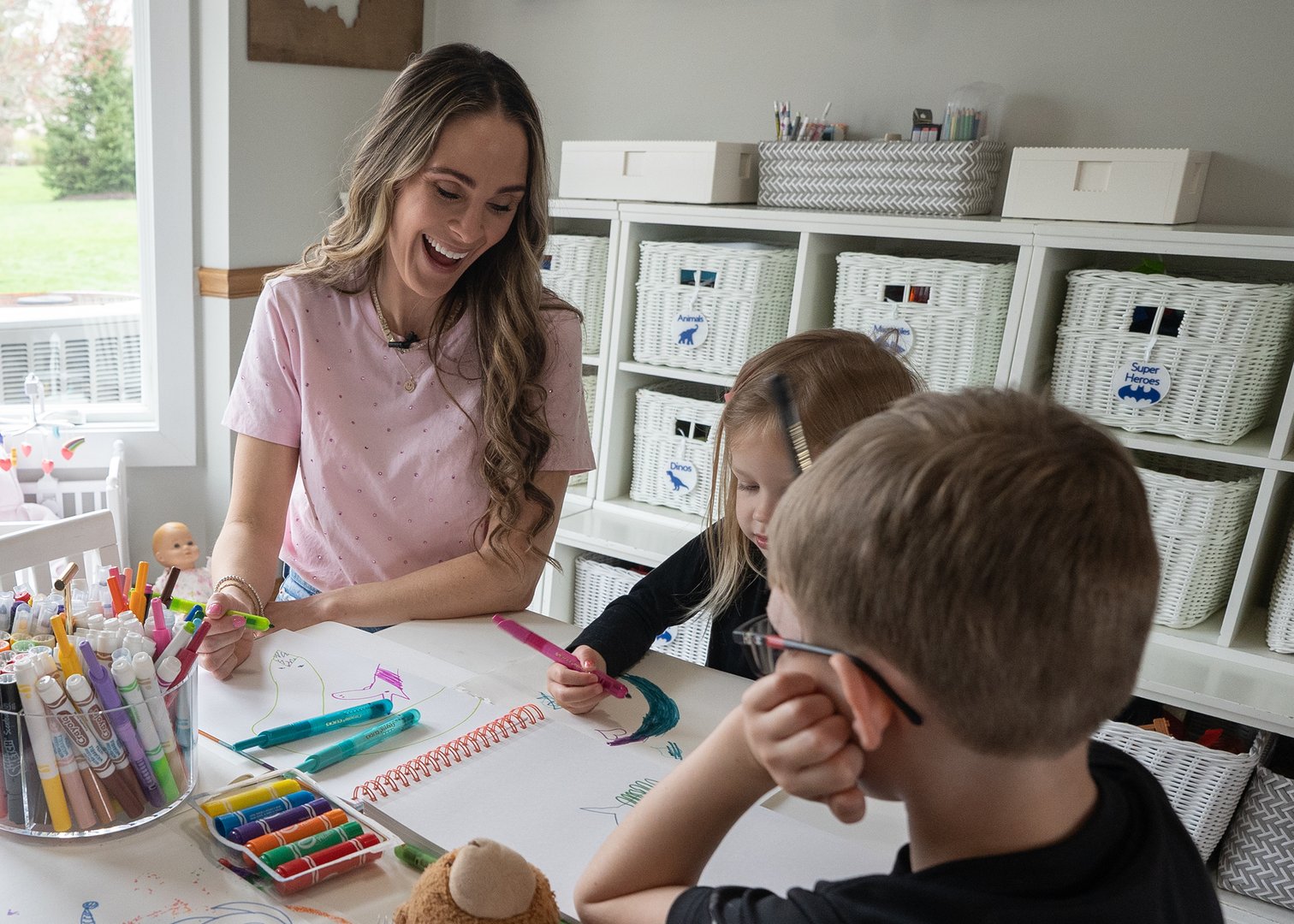By Dennis Thompson HealthDay Reporter
WEDNESDAY, April 24, 2024 (HealthDay News) — Anne Helms is one busy mom, constantly juggling the demands of working from home with parenting two young children.
Despite that whirl of activity, Helms says she often feels isolated and lonely.
“I work from home full time and I actually have a job where I’m on camera a lot and I’m Zoom calling people very often,†Helms, who lives in Columbus, Ohio, said in a news release.
“However, you don’t get the small talk, so you don’t get the, ‘How are your children? How’s it going?’ And you don’t get a lot of genuine answers when you do ask, ‘How is it going?’†Helms added.
“There are some days where the most chit-chat or idle talk that I get is with my dog because I work alone,†she said.
Helms isn’t the only parent to struggle with busy loneliness, according to a new national survey from Ohio State University’s Wexner Medical Center.
A broad majority of parents experience isolation, loneliness and burnout as a result of the demands of parenthood, the survey reveals:
About two-thirds of parents (66%) said the demands of parenthood sometimes or frequently feel isolated and lonely
Nearly as many, 62%, feel burned out by their responsibilities as a parent
Nearly two in five (38%) feel they have no one to support them in their parenting
About four in five (79%) would value a way to connect with other parents outside of work and home
“Even the places that I do try and seek out other parents, it’s kind of like we’re lost in the shuffle because it’s at daycare drop-off or pick-up where everyone just has tunnel vision,†Helms said. “And I think it’s hard to make friends when you’re feeling vulnerable.â€
Like Helms, Kate Gawlik has found there’s a lot to be desired when it comes to online work meetings.
Gawlik, an associate clinical professor in Ohio State’s College of Nursing who researches parental burnout, is mother to four young children.
“It’s pretty obvious that there is a huge difference between a virtual meeting and being in person,†Gawlik said in an Ohio State news release. “You miss a lot of those small interactions that you’d have in the hallway. Just a lot more of that personal touch has been eliminated, and in many regards it’s just never been infiltrated back into our society.â€
Gawlik notes that loneliness can have a tremendous impact on a person’s physical and mental health.
“So, anything from cardiovascular disease to depression, anxiety, cognitive decline, even your immune system can be affected when you’re lonely,†Gawlik said. “In fact, one study showed if you are in social isolation for a prolonged amount of time, it’s equivalent to smoking about 15 cigarettes a day.â€
In response to the problem, Gawlik has created a six-week positive parenting program that brings people together to commiserate about their challenges and offer each other support.
Gawlik’s program is where Helms first realized there were other parents struggling with loneliness.
“I think the biggest thing is she validated that if you’re working and you have children and you’re a conscientious parent, it would be wild if you weren’t burned out,†Helms said. “So I felt very validated when she said, “It’s okay that you’re here.’â€
Gawlik recommends that parents do an online search for similar groups in their communities. They also can look for playgroups, book clubs and recreational sports leagues, or reach out directly to other parents about scheduling playdates for their kids.
“Parenting can feel very lonely at times, but it will be easier if you have people around who can support you,†Gawlik said. “It can be hard to start seeking out connections because, to some degree, you will have to be vulnerable and, sometimes, it will take time and effort. But just take the first step.â€
Helms thinks this sort of human contact not only helps people battle loneliness, but can help them be better parents.
“I think it equips us to create better futures for our children; I think it makes us healthier,†Helms said. “I think that the ripple effect from connecting with other parents and getting support when you need it is immeasurable. It makes you a better employee. It makes you a better spouse, parent, friend. I think that it just enriches our lives … just like parenting does, but it just makes you level up.â€
More information
The U.S. Centers for Disease Control and Prevention has more on loneliness and health.
SOURCE: Ohio State University, news release, April 24, 2024
Copyright © 2024 HealthDay. All rights reserved.








